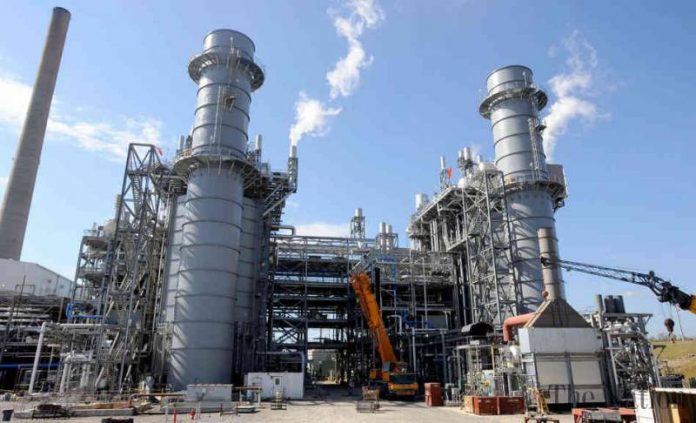KARACHI: Sindh is in negotiations with the federal government for establishment of its first ever re-gasified liquefied natural gas power plant of 1,200-megawatt capacity.
The project has received the blessings of Prime Minister Shahid Khaqan Abbasi, who was in Karachi on Wednesday for inauguration of 1,320MW Port Qasim coal-fired power plant.
On the occasion, Abbasi said federal government was intensely concentrating to fix issues plaguing the energy sector, including transmission and distribution network, power theft and circular debt, reported an English daily.
PM Abbasi opened one of two units at Port Qasim coal-fired power plant has been established in partnership by Qatar’s Al Mirqab Capital and China’s Powerchina Resources and under a joint-venture with Port Qasim Electric Power Company (PQEPC). The second unit is expected to start generation in February 2018.
Abbasi said the power plant had been completed ahead of schedule and in record time of thirty-months. Funding for the project was provided by Export-Import Bank of China in 75:25 debt to equity proportion.
Karachi, the industrial heartland of Pakistan receives 650MW of electricity from national grid and still faces deficit of 400-500MW during peak summer season.
This project is the 2nd largest established under China-Pakistan Economic Corridor (CPEC). Power generation from RLNG based power plants is expensive compared to those from natural gas due to price disparity between the imported commodity and locally produced one.
Over 3,600 megawatt of RLNG-based power projects have been established in Punjab province by provincial government and another 1,200MW one is under construction.
Abbasi stated cost of procurement, engineering and construction of new power projects had fallen by 50 per-cent in last three years, which would facilitate newer projects to be established at a lower cost.




